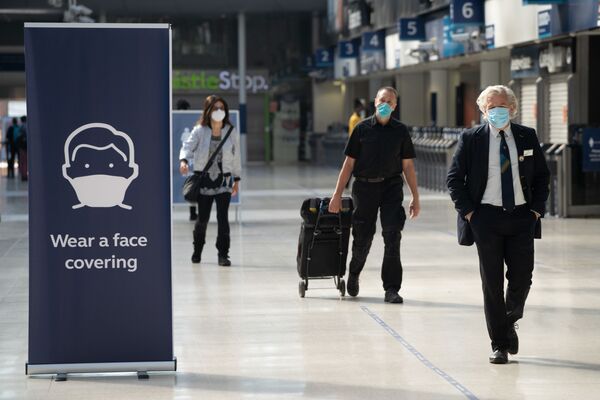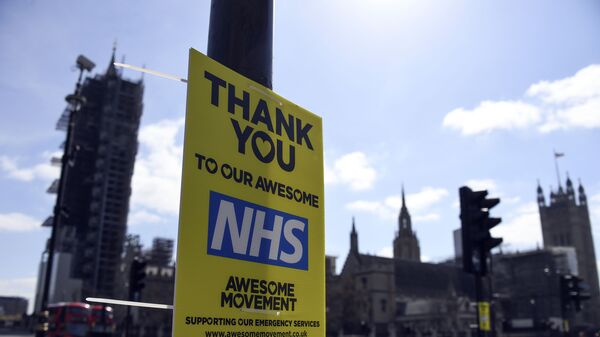UK Prime Minister Boris Johnson is to announce £3bln of extra funding for the National Health Service (NHS) in a bid to alleviate public concerns over the government’s preparedness to deal with a possible second wave of COVID-19 this winter, reports The Guardian.
The funds, made immediately available to NHS England, are reportedly to go towards keeping the emergency Nightingale hospitals open until March, while delivering on the Prime Minister’s promise to elevate testing capacity to 500,000 daily.
“The prime minister is clear that now is not the time for complacency, and we must make sure our NHS is battle ready for winter,” a No 10 spokesperson was cited as saying.
Will the Extra Funds be Enough?
Dr. Jason Oke, a senior statistician at the Nuffield Department of Primary Care Health Sciences, University of Oxford, believes the recent forecast that the UK risks 120,000 deaths this winter in a possible resurgence of COVID-19 has prompted the government to promise additional funding for the NHS so that it can prepare for a worst case scenario, but raised questions regarding how it will be invested.
“The question however, is whether this money would be better invested elsewhere in social care so that the most vulnerable can be protected rather than building capacity in ventilators and emergency hospitals that were hardly used,” says Jason Oke.
Commenting on the £3bn in extra NHS funding announced by Boris Johnson, Siva Anandaciva, chief analyst at The King’s Fund think-tank, focusing on projects covering NHS funding, finances, productivity and performance, acknowledges this is a substantial sum, greater than the £400-700 million NHS services were granted in previous years to cope with winter pressure, but said it would most likely be called for under the current grave circumstances.
“Extra funding for NHS services will help maintain the extra capacity that was put in place over recent months – including extra beds and staff across NHS hospitals, Nightingale Hospitals and the private sector. But to maintain and improve care for patients it is equally important that financial support is provided for social care services so that the health and care system has the funding and staff they need,” says Siva Anandaciva.
Roadmap to Recovery
The news comes as the next stage of the government’s “roadmap” to recovery is to be detailed by Johnson at a Friday press conference. Eased guidelines are also expected regarding safety of social contacts amid the pandemic, writes the outlet.
Amid persisting public fears over a potential second wave of the respiratory disease, with data showing use of public transport at a lower level than anticipated since lockdown was eased, the government is seeking to aid economic recovery by urging people to increasingly return to their workplaces.

“What I want to see is people now who have been working from home for a long time, talking to employers, talking to their place of work, about the steps that have been taken, and looking to come back to work in a safe way,” Boris Johnson was quoted as saying earlier in the week.
To encourage public transport use, officials are reportedly working on a banding system to suggest quieter times to use services, as Bank of England Governor Andrew Bailey told Tory MPs on 15 July that a “fear” of commuting was “holding back the recovery”, according to the Daily Telegraph.
In an effort to reassure shoppers, Secretary of State for Health and Social Care Matt Hancock announced on 14 July that face masks in shops and supermarkets would be mandatory from 24 July.
A fine of up to £100 faces those failing to comply with the rules that children under 11, those with certain disabilities, and people working in shops will be exempt from.
Hancock earlier dismissed reports that there were plans to make face coverings mandatory for office workers in the UK.
"It is something we've looked at and rejected," he said.
Hancock is also reportedly planning expansion of flu vaccinations as a means of relieving the burden on the NHS from illnesses not related to COVID-19.
‘Big Effort Ahead’
In what appears to be in conflict with Boris Johnson’s hopes to bring workers back into offices, the government’s chief scientific adviser, Sir Patrick Vallance, told MPs on the Science and Technology Committee he saw "no reason" to reverse the policy of advising people to work from home if possible.
"We're still at a time when distancing measures are important and of the various distancing measures working from home for many companies remains a perfectly good option," said Vallance.
Vallance also acknowledged that there was a need for a big effort ahead of a possible resurgence of the virus in the autumn.
“It’s fully understood, and it needs to be acted on… As an adviser I can’t make that happen. But I think it’s important that it does happen,” said Vallance.




